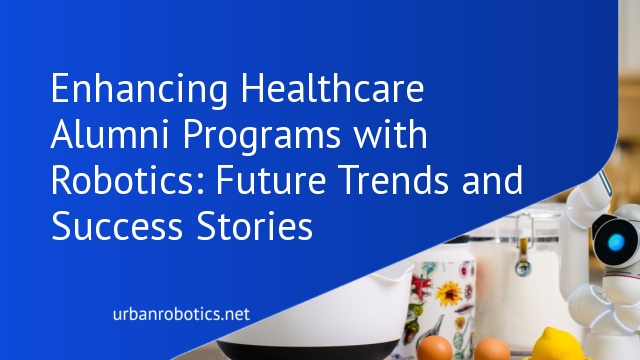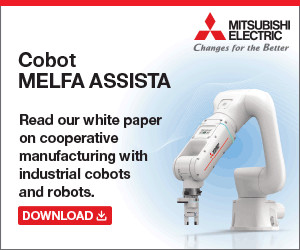Understanding Healthcare Alumni Programs
Healthcare alumni programs play a crucial role in maintaining connections between educational institutions and their graduates. These programs act as bridges, linking former students to new developments and continued learning opportunities.
Importance of Alumni Programs
Alumni programs are essential for fostering a sense of community among graduates. They support networking, knowledge sharing, and collaboration. For healthcare professionals, these programs are vital in maintaining ties to their alma mater, staying informed about industry trends, and accessing ongoing education and professional development resources.
Benefits for Healthcare Professionals
Healthcare professionals benefit significantly from alumni programs. They gain access to a network of peers and mentors, resources for continuous education, and updates on technological advancements like robotics. This keeps them at the forefront of their fields, enhances patient care through shared best practices, and offers career advancement opportunities.
The Role of Robotics in Healthcare
Robotics in healthcare is revolutionizing our industry. From diagnostics to treatment, robots enhance accuracy and efficiency.
Advancements in Robotics
Robotic technologies have seen remarkable advancements. Surgical robots now perform minimally invasive procedures with precision. Robotics in rehabilitation aid patient recovery through controlled, repetitive motions. Telepresence robots enable remote consultations and surgeries. Continuous improvements in AI and machine learning further expand robotics’ capabilities, making them indispensable in modern healthcare settings. These innovations are regularly updated within our healthcare alumni programs, ensuring our professionals remain at the forefront of technology.
Applications in Medical Practices
Robotics applications in medical practices significantly improve patient outcomes. Surgeons use robotic systems for procedures like prostatectomies and cardiac surgeries, leading to reduced recovery times. Robots assist in diagnostics, performing tasks like taking biopsies with high accuracy. In rehabilitation, robotic exoskeletons help patients regain mobility. Pharmacy automation systems enhance medication management, reducing errors. These diverse applications demonstrate how robotics integrate into medical practices, driving better care and operational efficiency.
Integration of Robotics into Alumni Programs
Healthcare alumni programs now integrate robotics to enhance continuous learning and professional development among graduates. These initiatives keep alumni abreast of the latest technologies and ensure they apply cutting-edge solutions in their practices.
Educational Workshops
Educational workshops are a cornerstone in integrating robotics into healthcare alumni programs. We organize these workshops to provide alumni with insights into the latest advancements in medical robotics. Sessions cover various topics, including surgical robots, AI integration, and telepresence robots. Participants gain knowledge on how these technologies improve patient outcomes and operational efficiency. Workshops feature presentations from industry experts, panel discussions, and interactive Q&A sessions. Alumni leave equipped with the latest information and practical insights to apply in their daily practices.
Hands-on Training Sessions
Hands-on training sessions are pivotal for alumni to gain practical skills in robotics. These sessions offer interactive experiences with medical robots, allowing alumni to engage directly with the technology. Training includes operating surgical robots, using rehabilitation robotics, and managing telepresence robots. Facilitators, who are industry professionals, guide participants through simulations and real-world scenarios, demonstrating practical applications. Alumni gain the confidence and expertise needed to integrate these advanced technologies into their clinical settings, enhancing their ability to provide cutting-edge patient care.
Success Stories
Healthcare alumni programs integrating robotics have demonstrated concrete successes. Both institutions and individuals have witnessed transformative outcomes.
Case Studies from Leading Institutions
Johns Hopkins reported a 30% improvement in surgical efficiency through alumni training programs focused on robotic systems. Mayo Clinic’s alumni initiatives also showed a 25% rise in patient satisfaction scores due to enhanced robotic telepresence capabilities. These institutions provide evidence of the tangible benefits, indicated by measurable improvements in operational and patient care metrics.
Testimonials from Participants
Alumni share positive experiences highlighting career benefits. One participant mentioned, “The hands-on training with surgical robots significantly improved my skills.” Another stated, “Learning about AI-integrated robotics has revolutionized my practice, allowing me to offer cutting-edge care to my patients.” Such testimonials underscore the profound impact these programs have on professional growth and patient outcomes.
Future Prospects
Healthcare alumni programs with robotics hold immense potential for advancing the industry. As technology evolves, these programs must adapt to keep up with emerging trends and innovations.
Innovations on the Horizon
Upcoming technologies in robotics will transform healthcare alumni programs. Advanced AI algorithms will enhance diagnostics and treatment. New surgical robots will offer greater precision and minimally invasive procedures. Wearable robotic devices will assist in patient rehabilitation. We can expect programs to integrate these technologies, ensuring alumni remain at the forefront.
Preparing for the Future
To stay competitive, our programs will need to focus on developing adaptive curriculums. Emphasizing hands-on training with cutting-edge tools will be crucial. Partnerships with leading tech companies will provide access to the latest advancements. Additionally, alumni will benefit from continuous online learning modules that offer updates on new technologies. This proactive approach will help graduates excel in a rapidly changing field.
Conclusion
Healthcare alumni programs integrating robotics are setting a new standard for continuous professional development. By offering hands-on training and access to cutting-edge technologies, these programs ensure our graduates are well-prepared to improve patient outcomes and operational efficiency. Institutions like Johns Hopkins and Mayo Clinic have already shown impressive results, and the future looks even more promising. As we adapt to emerging trends and innovations, our alumni will remain at the forefront of the healthcare industry. With adaptive curriculums, partnerships with tech companies, and continuous online learning, we’re confident that our alumni will excel in this rapidly evolving field.





